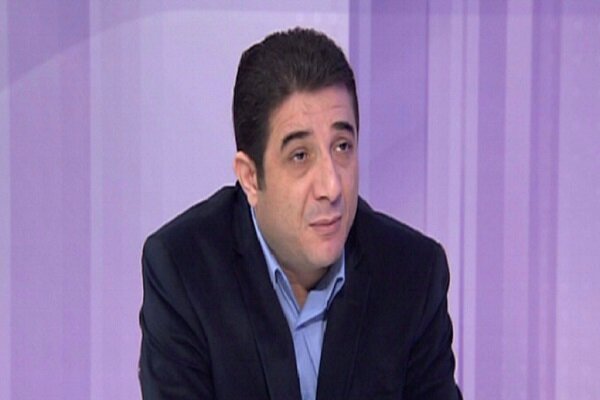Analyst expects Hezbollah to play a constructive role in Gov. formation

TEHRAN – Ghassan Javad, a Lebanese analyst, expects Hezbollah to contribute constructively information of a new government in Lebanon based on "the resistance's understanding of the Lebanese reality and necessity of Lebanese consensus."
On the role of Hezbollah in the next Lebanese government, French President Emmanuel Macron has said that Hezbollah is a political group that has the right to be in power.
Contrary to all comments that say Hezbollah should be eliminated from the Lebanese decision-making process, the French think that the party has a meaningful social base in Lebanon.
The French push for a systematic involvement of Hezbollah in Lebanese institutions, believing that it will be in the interest of the country and other groups.
The Lebanese analyst tells the Tehran Times that Hezbollah will be a participant in the next government and will help prepare the conditions to form a national unity government.
"Of course, Hezbollah will have a constructive role in the process of forming a new government in Lebanon, based on the resistance's understanding of the Lebanese reality and necessity of Lebanese consensus," Javad points out.
After naming the Lebanese prime minister on August 31, Macron said in Beirut that the Lebanese political groups had pledged to form a new government headed by Mustafa Adib within 15 days.
He warned about the consequences of a failure by the Lebanese parties to fulfill what they had pledged by the end of October.
Javad underlines that it was clear that there was a great French effort to form a national unity government or national consensus government.
"This government is a salvation government, and its mission is to unify the Lebanese to contain the economic, social, financial, and political crises that we are living in," Javad remarks.
Macron added in a press conference that he had contacted his Iranian counterpart Hassan Rouhani, Saudi Crown Prince Mohammed bin Salman, and international leaders to discuss ways of helping Lebanon, explaining that he felt these leaders had a will to allow Lebanon to follow its path.
In fact, Macron's domain of activities has been very wide, starting from Iran, which was flexible in response to efforts to form a new government, and Hezbollah, which responded positively to what the French president has proposed and its willingness to cooperate based on a set of considerations.
On the other hand, some Lebanese observers believe that the French try to exploit the shock caused by the Beirut blast and take the initiative when the Americans are busy with their elections.
Javad confirms that there was a French pressure on the Lebanese factions to form a government of national unity, or at the very least, a government supported by a vast majority of political groups.
According to Lebanese media outlets, there was a meeting between the Lebanese political blocs to reach a consensus about the next prime minister, and this matter was evident
during the visit of the French leader to Lebanon.
"In his meetings with the Lebanese politicians and officials, Macron insisted on French interests and concerns in Lebanon, pointing to French-Iranian and French-American convergence there," the Lebanese analyst says.
Javad notes that "apparently there is no objection by the United States and regional countries to the French role on the basis of consensus at this difficult historical phase."
Responding to a question about the possibility of a fundamental change in Lebanon's political structure, the Lebanese analyst believes that "we need a completely new political structure, but there will be a transitional phase and preparation for the parliamentary elections."
"Afterwards, it is possible to talk about a move towards a new political system and a new political formula. Currently, we are in a transitional phase, and of course, Lebanon needs an internal and external consensus in order to move towards political stability," according to Javad.
Leave a Comment